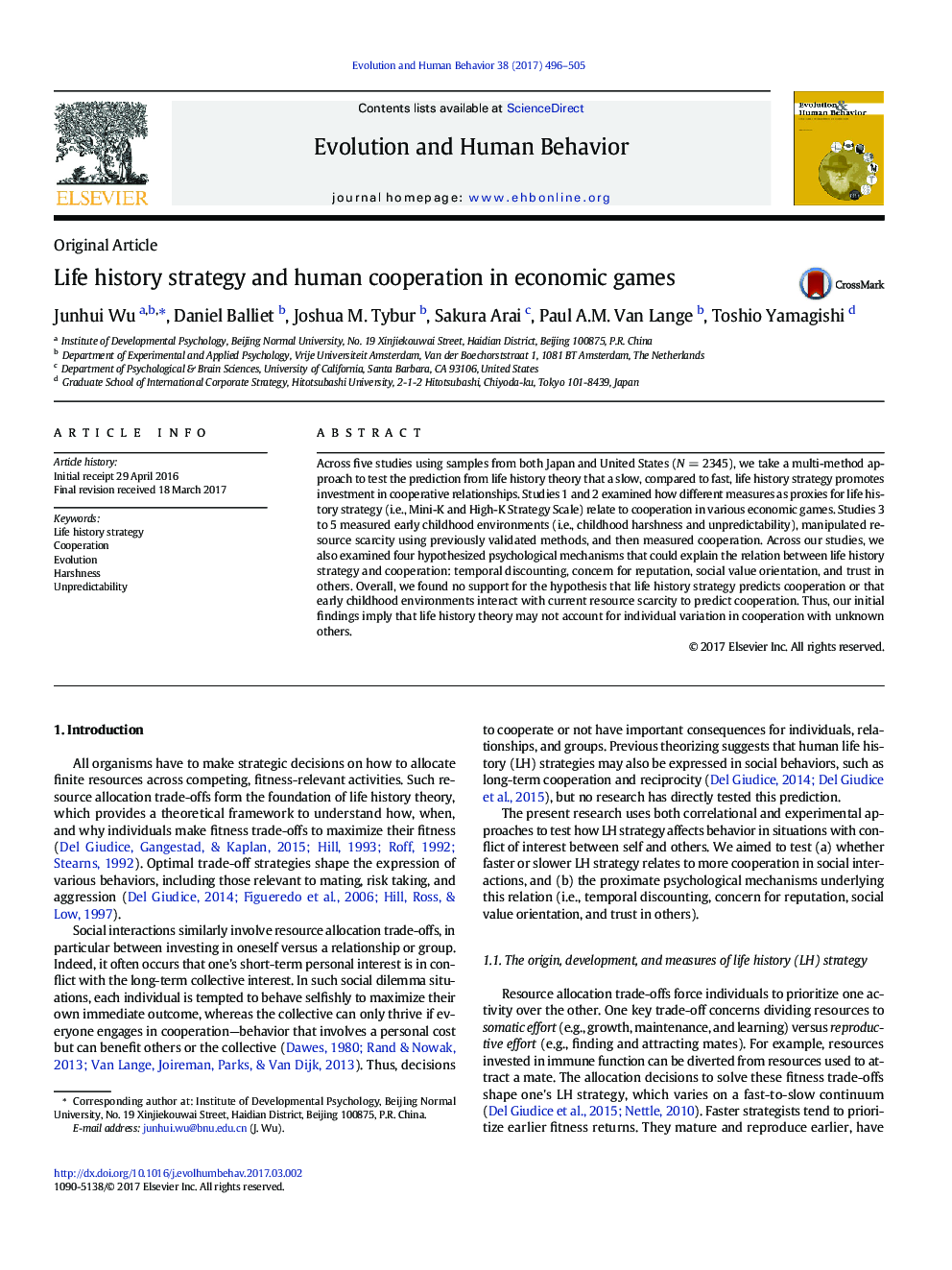| Article ID | Journal | Published Year | Pages | File Type |
|---|---|---|---|---|
| 5044816 | Evolution and Human Behavior | 2017 | 10 Pages |
Across five studies using samples from both Japan and United States (NÂ =Â 2345), we take a multi-method approach to test the prediction from life history theory that a slow, compared to fast, life history strategy promotes investment in cooperative relationships. Studies 1 and 2 examined how different measures as proxies for life history strategy (i.e., Mini-K and High-K Strategy Scale) relate to cooperation in various economic games. Studies 3 to 5 measured early childhood environments (i.e., childhood harshness and unpredictability), manipulated resource scarcity using previously validated methods, and then measured cooperation. Across our studies, we also examined four hypothesized psychological mechanisms that could explain the relation between life history strategy and cooperation: temporal discounting, concern for reputation, social value orientation, and trust in others. Overall, we found no support for the hypothesis that life history strategy predicts cooperation or that early childhood environments interact with current resource scarcity to predict cooperation. Thus, our initial findings imply that life history theory may not account for individual variation in cooperation with unknown others.
